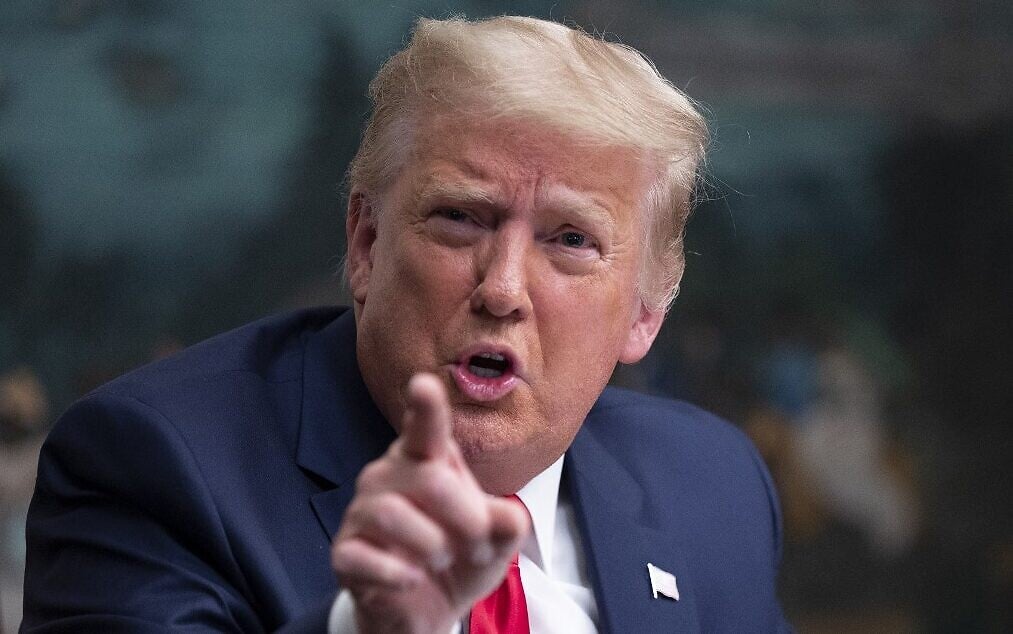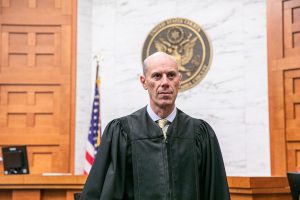President Donald Trump escalated tensions in Washington on Thursday after forcefully denouncing six Democratic lawmakers who released a public video calling on members of the U.S. military to refuse what they described as “illegal orders” from his administration. Trump’s reaction—posted in a series of statements on Truth Social—accused the legislators of sedition and demanded their immediate arrest, marking one of the sharpest rhetorical clashes yet between the White House and congressional Democrats during his current term.
The controversy erupted earlier this week when a group of Senate and House Democrats posted a one-minute video warning service members to remain vigilant in upholding their oath to the Constitution. In the video, the lawmakers asserted that “threats to our Constitution” were not only foreign but “right here at home,” and they urged military personnel to resist any directive that would violate U.S. law.
Their remarks quickly circulated across social media, drawing both praise and sharp criticism. But the backlash reached a new level Thursday morning when President Trump publicly accused the lawmakers of attempting to undermine the military chain of command and destabilize the nation.
In a fiery post, Trump declared their actions “SEDICIOUS BEHAVIOR AT THE HIGHEST LEVEL,” adding that, in his view, the lawmakers had crossed a red line. “Each one of these traitors to our Country should be ARRESTED AND PUT ON TRIAL,” he wrote. “Their words cannot be allowed to stand – We won’t have a Country anymore!!! An example MUST BE SET.”
The president also amplified comments from his supporters on Truth Social, including one user who invoked historical imagery by writing in all capital letters: “Hang them George Washington would!!” Trump reposted the message without additional commentary, but his action immediately drew criticism from Democrats who argued that the president was encouraging extremist rhetoric rather than engaging in a constitutional debate.
The Video That Sparked the Clash
The video—titled “Don’t Give Up The Ship”—featured six Democratic lawmakers:
-
Sen. Elissa Slotkin (Michigan)
-
Sen. Mark Kelly (Arizona)
-
Rep. Chris Deluzio (Pennsylvania)
-
Rep. Chrissy Houlahan (Pennsylvania)
-
Rep. Maggie Goodlander (New Hampshire)
-
Rep. Jason Crow (Colorado)
All six are either military veterans, former national security officials, or lawmakers who have served on committees related to armed services and intelligence. Their message emphasized the oath service members take upon entering the military—an oath to defend the Constitution above all else.
“We know you are under enormous stress and pressure right now,” the group said. “Americans trust their military, but that trust is at risk. This administration is pitting our uniformed military and intelligence community professionals against American citizens like us.”
They went on to stress that the law provides clarity: “You can refuse illegal orders … you must refuse illegal orders. No one has to carry out orders that violate the law or our Constitution.”
While the lawmakers did not specify which orders they believed might be unlawful, their comments were widely interpreted as a direct challenge to Trump’s authority—and a preemptive warning to service members who may face politically sensitive directives.
The President’s Response
Trump’s reaction was immediate and unusually severe, even by his standards. By labeling the lawmakers’ comments as “seditious,” he invoked one of the most serious accusations in U.S. law—an allegation traditionally applied to efforts aimed at undermining the government or inciting rebellion. He did not cite any specific statute, nor did he indicate whether his administration was initiating any formal legal action.
Nevertheless, his rhetoric suggested that he believes the lawmakers’ message amounted to an attempt to erode military discipline. “We cannot have people in Congress telling our troops to defy their commander in chief,” a senior administration official told reporters later in the morning, echoing the tone of the president’s Truth Social posts. The official, however, declined to say whether the Justice Department had been asked to review the matter.
Democratic leaders, meanwhile, dismissed the president’s remarks as an overreach intended to intimidate critics. Several legal scholars also weighed in publicly, noting that advising service members of their duty to refuse illegal orders is not only lawful but consistent with long-standing military practice and U.S. legal precedent.
Understanding the Debate Over ‘Illegal Orders’
The concept of refusing unlawful orders is central to military conduct. Service members are trained to disobey commands that violate the Constitution, federal law, or the Uniform Code of Military Justice. This principle exists to prevent abuses of power and has been reaffirmed in court rulings over decades.
The Democratic lawmakers in the video pointed directly to this principle, emphasizing that loyalty to the Constitution supersedes loyalty to any individual political leader. Their critics, however, argue that the video could be interpreted as an invitation for troops to question routine directives, thereby eroding the chain of command.
The dispute underscores a deeper political divide: Trump and his allies view the message as an intentional effort to sow distrust within the military ranks, while Democrats insist it was a necessary reminder of constitutional boundaries.
Political and Military Fallout
Military officials have not issued formal statements on the dispute, but defense analysts note that the Pentagon generally avoids entering political conflicts. Still, the issue has generated significant attention within defense circles due to the sensitive nature of civil-military relations.
Some military scholars warn that public exchanges like this—especially those involving accusations of sedition—risk blurring the lines between civilian oversight, lawful dissent, and political rhetoric. “Once you involve the military in political messaging, even indirectly, you introduce a layer of risk that is difficult to control,” said one retired general, who spoke to reporters on background.
The six Democratic lawmakers have not responded directly to Trump’s demand for arrests, but aides to several of them emphasized that their video was intended purely as a reminder of constitutional obligations. They assert that encouraging adherence to the law cannot be construed as sedition.
A Moment of Heightened Tension
The clash comes at a time of heightened tension in Washington, with partisan divisions intensifying over national security, foreign policy, and the role of the military. Trump’s supporters argue that the video represents a coordinated effort to undermine the administration, while critics contend that the president’s calls for arrests are an escalation that crosses democratic norms.
The political temperature surrounding the dispute shows no sign of cooling. Conservative media figures have echoed Trump’s framing of the video as dangerous and destabilizing. Liberal commentators, meanwhile, have described Trump’s response as authoritarian and alarming.
With both sides locked into sharply different interpretations of the same 60-second message, the confrontation has become yet another flashpoint in an environment already charged with political suspicion.
Looking Ahead
It remains unclear whether Trump intends to take any formal action or whether his remarks were intended primarily to rally supporters. The Justice Department has not made any public statements on the matter, and legal experts widely agree that prosecuting lawmakers for expressing an opinion—even one involving the military—would face serious constitutional barriers.
Still, the intensity of Trump’s reaction, combined with the national platform of the lawmakers involved, ensures that the controversy will continue to reverberate across political, military, and legal circles.
As the debate continues, one underlying issue remains clear: disagreements over civil-military boundaries, presidential authority, and constitutional duty are becoming increasingly central to the nation’s political landscape. Whether the current dispute fades or escalates further may depend on how both sides navigate those boundaries in the coming days.

Emily Johnson is a critically acclaimed essayist and novelist known for her thought-provoking works centered on feminism, women’s rights, and modern relationships. Born and raised in Portland, Oregon, Emily grew up with a deep love of books, often spending her afternoons at her local library. She went on to study literature and gender studies at UCLA, where she became deeply involved in activism and began publishing essays in campus journals. Her debut essay collection, Voices Unbound, struck a chord with readers nationwide for its fearless exploration of gender dynamics, identity, and the challenges faced by women in contemporary society. Emily later transitioned into fiction, writing novels that balance compelling storytelling with social commentary. Her protagonists are often strong, multidimensional women navigating love, ambition, and the struggles of everyday life, making her a favorite among readers who crave authentic, relatable narratives. Critics praise her ability to merge personal intimacy with universal themes. Off the page, Emily is an advocate for women in publishing, leading workshops that encourage young female writers to embrace their voices. She lives in Seattle with her partner and two rescue cats, where she continues to write, teach, and inspire a new generation of storytellers.









